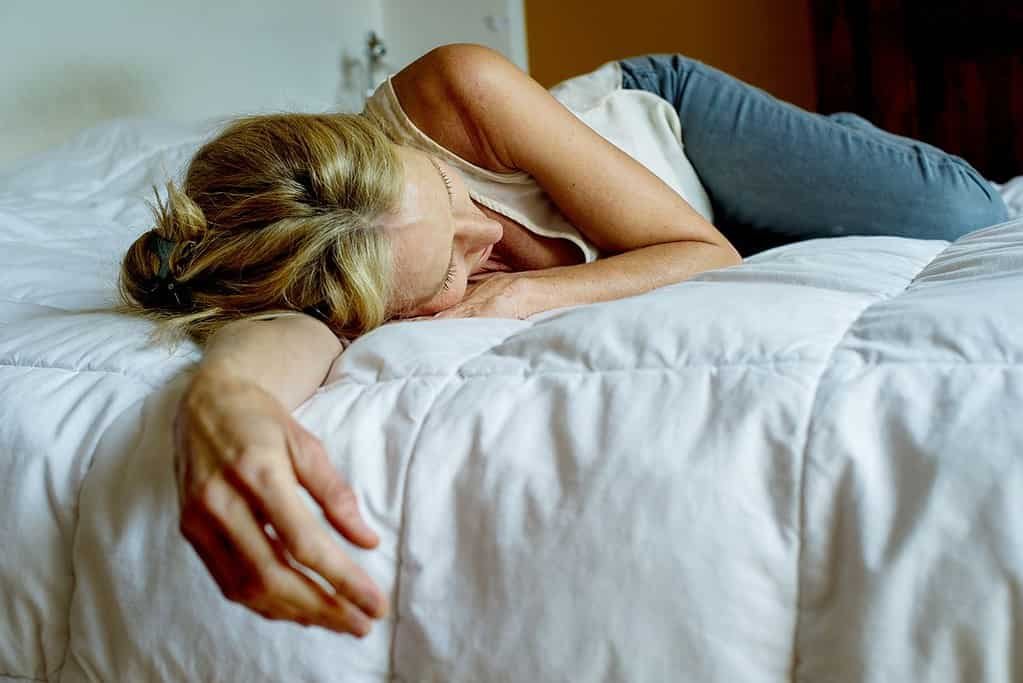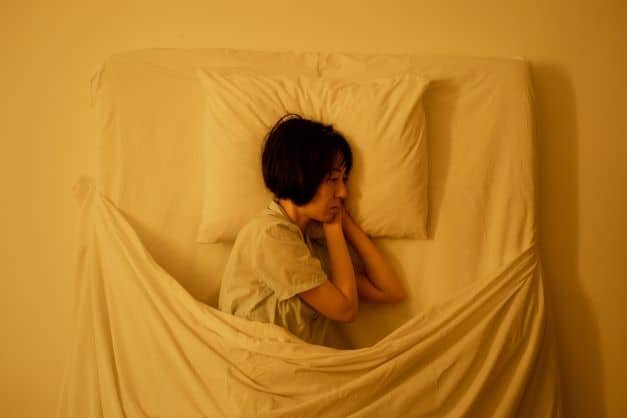Is oversleeping a sign of depression?
Depression is a common mental disorder. Globally, millions of people of all ages suffer from depression. Depression causes sadness and a loss of interest in activities you once enjoyed. It can lead to various emotional and physical problems and decrease a person’s ability to function at work or school.
Symptoms can include:
- feeling sad or having a depressed mood
- loss of interest or pleasure in activities once enjoyed
- changes in appetite — weight loss or gain unrelated to dieting
- trouble sleeping or sleeping too much
- loss of energy or increased fatigue
- increase in purposeless physical activity (e.g., hand-wringing or pacing) or slowed movements and speech (actions observable by others)
- feeling worthless or guilty
- Difficulty thinking, concentrating, making decisions, remembering things, staying focused on something for extended periods (attention span is shorter), thoughts that race through the mind constantly like circular trains that cannot be stopped
Depression affects an estimated one in 15 adults (6.7%) in any given year and one in six people (16.6%) at some time. Depression can strike at any time, but on average, it begins around age 24; women are affected about twice as often as men.
What causes depression?
Depression is a brain disorder that can affect how you think, feel and act. It’s different for everyone but can include feeling sad and irritable or losing interest in things you usually enjoy. It can also cause physical symptoms like changes in your appetite or sleep patterns. While several factors can cause depression, it often starts with changes in the brain. Here are some of the most common causes of depression:
- Genetics: Your DNA is one thing that affects your likelihood of developing depression. If someone in your family has or has had depression, then your risk is higher.
- Brain chemistry includes low “feel-good” chemicals called neurotransmitters (norepinephrine and serotonin). Although it’s unclear why this happens, research suggests genetics may play a role here.
- Hormones: Some hormones don’t function normally when you have depression, which can affect mood and stress levels. For example, people with thyroid problems sometimes have symptoms similar to depression.
- Environmental stressors are stressful life events that are difficult to predict or control—like losing a job or getting divorced—or ongoing stresses like living with financial difficulties or caring for an elderly parent who needs help around the clock. Depressed men and women also report more childhood trauma (e.g., abuse) than people without depression.
What causes excessive sleepiness and oversleeping?
Excessive sleepiness may be a symptom of another condition besides depression. For example, excessive sleepiness can also be a symptom of hypothyroidism and sleep apnea. Oversleeping is typically a sign of depression if it co-occurs with other symptoms of depression. Oversleeping is usually not tied to bipolar disorder or different types of mood disorders. It’s also typically linked to clinical depression or seasonal affective disorder if it occurs only during certain times of the year, such as winter (when there isn’t much daylight). Sometimes, oversleeping and excessive sleepiness can be independent symptoms that occur together or separately from mental health problems like depression. Excessive sleepiness often has an underlying cause that must be treated to resolve the issue.

How can I tell if I’m depressed or just tired?
It’s hard to tell the difference between oversleeping and depression because depression is a leading cause of fatigue. You may be struggling with a depressive disorder if you’re sleeping much more than usual, negatively impacting your life in some way. People with other health conditions or mental illnesses, such as anxiety and bipolar disorder, also experience depression. They may feel exhaustion differently than people who have major depressive disorder alone. For example, someone with bipolar disorder may alternate between periods of oversleeping and insomnia.
Oversleeping is a symptom that many different things can cause. Medical conditions like heart disease and diabetes, psychiatric disorders including depression, substance abuse problems, and medications such as antidepressants can all contribute to oversleeping. If you think you are depressed but unsure if oversleeping is one of the symptoms, talk to your doctor or mental health provider about it so they can help you sort through what’s happening.
Can less than 8 hours of sleep cause depression?
Chronic insomnia, a period (usually at least 3 months) in which someone has difficulty falling or staying asleep, is often a sign of depression. However, it is also reasonably common for people who have been diagnosed with depression to experience trouble sleeping as well. In other words, sleep problems can be both the cause and the effect of depression. If you feel this is happening to you regularly, talking about it with your doctor is essential. They will likely want to help find ways for you to get more sleep so that your mood improves. One treatment option could be cognitive behavioural therapy (CBT), which enables you to identify what triggers your insomnia and teaches you how to respond differently. You may also want to try some lifestyle changes, like exercising regularly and avoiding caffeine late in the day.
How can I stop sleeping a lot if I’m depressed?
The first step to treating excessive sleeping is to determine the cause. A doctor will perform a physical exam and ask questions about your health, habits, and lifestyle. They will also administer tests to rule out any underlying conditions contributing to your sleep. Here are some steps you can take to get more shut-eye:
- Try to go to bed around the same time every night, including on weekends.
- Start waking up at the same time every morning.
- Avoid using electronics before bed. These devices emit blue light, interfering with melatonin production and making falling asleep harder. If it’s challenging to keep away from your phone or computer after turning out your light, try charging them in another room for the night.
- Exercise regularly. Regular exercise helps with sleep quality. It’s best not to engage in strenuous activity right before going to sleep, as this can make falling asleep more difficult due to increased body temperature that counteracts drowsiness. Try exercising mid-day instead of right before bedtime if this is an issue for you!
- Avoid heavy meals before bedtime. Eating heavy meals within 2 hours of going to bed can disrupt normal digestion and make falling asleep difficult due to bloating or heartburn.
Lifestyle changes
Making lifestyle changes is an excellent way to help improve your mood and reduce symptoms of depression. The following tips may help:
- Get regular exercise. Vigorous exercise releases endorphins, which can improve your mood and relieve stress. Exercise also improves sleep, which is often disrupted by depression. If you’re reluctant to exercise alone, consider joining a class or walking with a friend.
- Eat a healthy diet. A healthy diet includes lots of fresh fruits and vegetables and limits sugary processed foods that can worsen feelings of depression or anxiety. Healthy eating will also give you more energy for activities such as exercise.
- Get enough sleep. If you’re depressed, you may have trouble falling asleep or sleeping too much (oversleeping). Try to establish consistent sleep habits by going to bed around the same time every day and getting up at the same time each morning — even on weekends.
- Practice relaxation techniques such as deep breathing exercises, meditation, or yoga to help relieve stress and tension that can lead to oversleeping if not properly managed
- Get a new mattress. A too-soft or hard mattress can make it difficult to fall asleep. A medium-firm mattress is often recommended for people with sleep disorders.
Getting more than 9 hours of sleep per night may indicate that you need help for depression.
While 9 hours of sleep is generally a guideline, anyone sleeping more than 9 hours per night could have an underlying health issue causing them to oversleep. It is understandable to get as much sleep as possible when you are tired or depressed, but getting extra rest doesn’t make you feel better in the long run. It can worsen your symptoms and prevent your overall improvement with proper treatment.
It’s also important to remember that depression isn’t always accompanied by insomnia. If anything, some people with depression tend to oversleep and excuse their symptoms by blaming it on being tired all the time. If this sounds like something you’ve experienced before, then maybe now is the time for some self-reflection about what might be going through your mind when waking up every day, knowing there will be no reprieve from your thoughts until bedtime again later tonight.”
Medication
People who struggle to sleep more than they should find relief from medication. Antidepressants can be prescribed to help with excessive sleepiness, but they can also take time to work, and that’s not always the best option for people hoping for a quick fix. For example, tricyclic antidepressants like amitriptyline (Elavil) are sometimes prescribed as a sleep aid and can contribute to oversleeping, especially when starting treatment. It’s important to talk with your doctor about any medications you’re taking that could affect your sleep — and ask them what side effects you should look out for.
Oversleeping is just one symptom of depression. If a lack of energy or motivation has left you in bed all day several times this week (or longer), it might be time to see a mental health professional for an evaluation. They can help determine what type of treatment is right for you. Treatment options may include therapy, lifestyle changes, and medication — and any medication must interact safely with other drugs you’re taking or conditions you have. While prescription treatments like antidepressants are practical tools for many people coping with depression symptoms like oversleeping, they aren’t the only option — nor the best choice for everyone.
Therapy
Therapy can help you get to the root of your depression. Does oversleeping stem from something else you may be feeling? Are you depressed as a result of another issue? Is there a part of your life that is making you unhappy, causing you to turn to oversleeping as an escape? Whatever the underlying cause, therapy can help give you insight into yourself. It’s important not to overlook this aspect of depression treatment. A therapist can help figure out why you are oversleeping and suggest how to manage these symptoms better.
Research shows that therapy is beneficial for depression treatment, and it’s an excellent option if your over-sleeping stems from or worsens other mental health conditions like anxiety or substance abuse.



